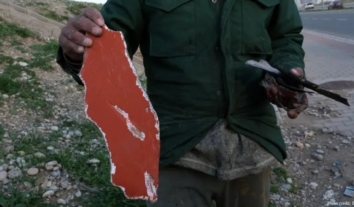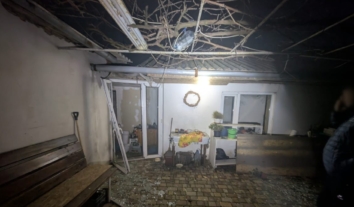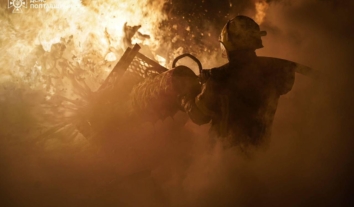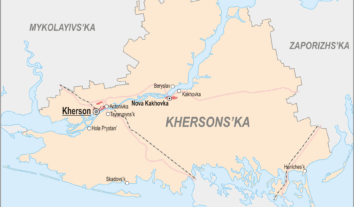Crimean Human Rights Group calls for new international laws against inciting genocide
Iryna Siedova, a researcher at the Crimean Human Rights Group (CHRG), warned that the Russian information space has become a powerful “Thousand Hills Radio,”і manipulating 140 million people and inciting Russians to kill Ukrainians. She made this statement during the OSCE Human Dimension Implementation Meeting in Warsaw on October 9.
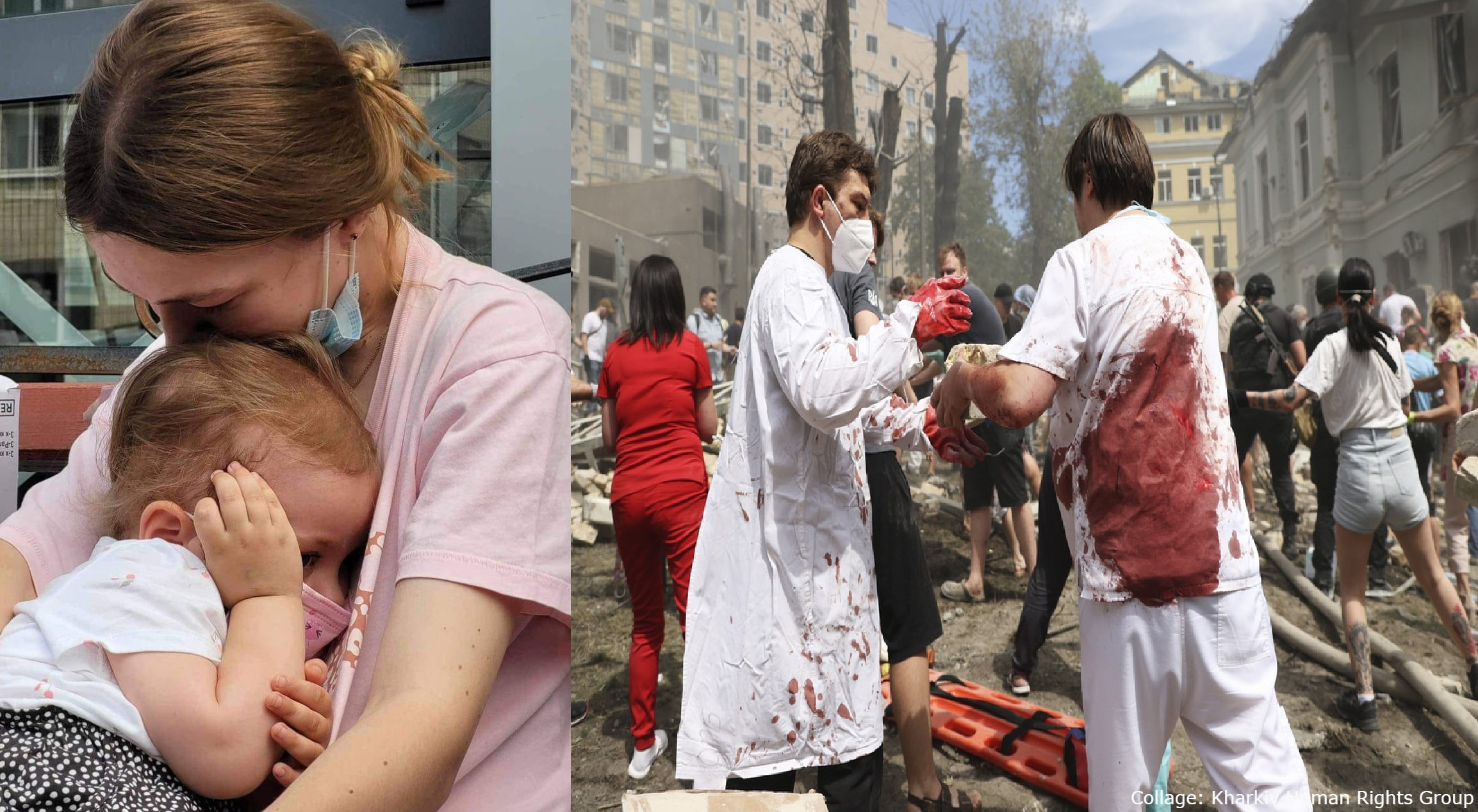 Okhmatdyt National Specialised Children’s Hospital – Ukraine’s biggest paediatrics facility – after Russia’s missile strike on July 8, 2024
Okhmatdyt National Specialised Children’s Hospital – Ukraine’s biggest paediatrics facility – after Russia’s missile strike on July 8, 2024Siedova explained that Russia has systematically fostered hatred toward Ukrainians through state television broadcasts since the occupation of Crimea. Following the full-scale invasion in 2022, these statements have escalated to calls for genocide and aggressive war against Ukraine.
Siedova informed the audience that since February 2022, the Crimean Human Rights Group has been studying the content of five of the most popular Russian television channels, as well as posts by Russian influencers on the Telegram messenger.
The CHRG has documented at least 400 statements that contain elements of calls for genocide and calls for waging aggressive war. These come from influential Russian figures, including TV presenters, government officials, and military commanders.
“These statements pose a grave threat to Ukrainians, because in the occupied territories of Ukraine these calls are followed by many war crimes, including those committed particularly due to hatred that is recorded by international organizations and investigative bodies. There are also records of mass ethnic persecutions of Ukrainians in the occupied territories and forced deportation of Ukrainian children, which is a constituent of genocide,” Siedova explained.
Read also: Denying the existence of the Ukrainian nation exacerbates calls for genocide of Ukrainians
To illustrate the impact, Siedova referenced the Kramatorsk railway station attack on April 8, 2022. Russian propagandists called for bombing Ukrainian cities and railway stations the day before, resulting in 61 deaths, including of seven children.
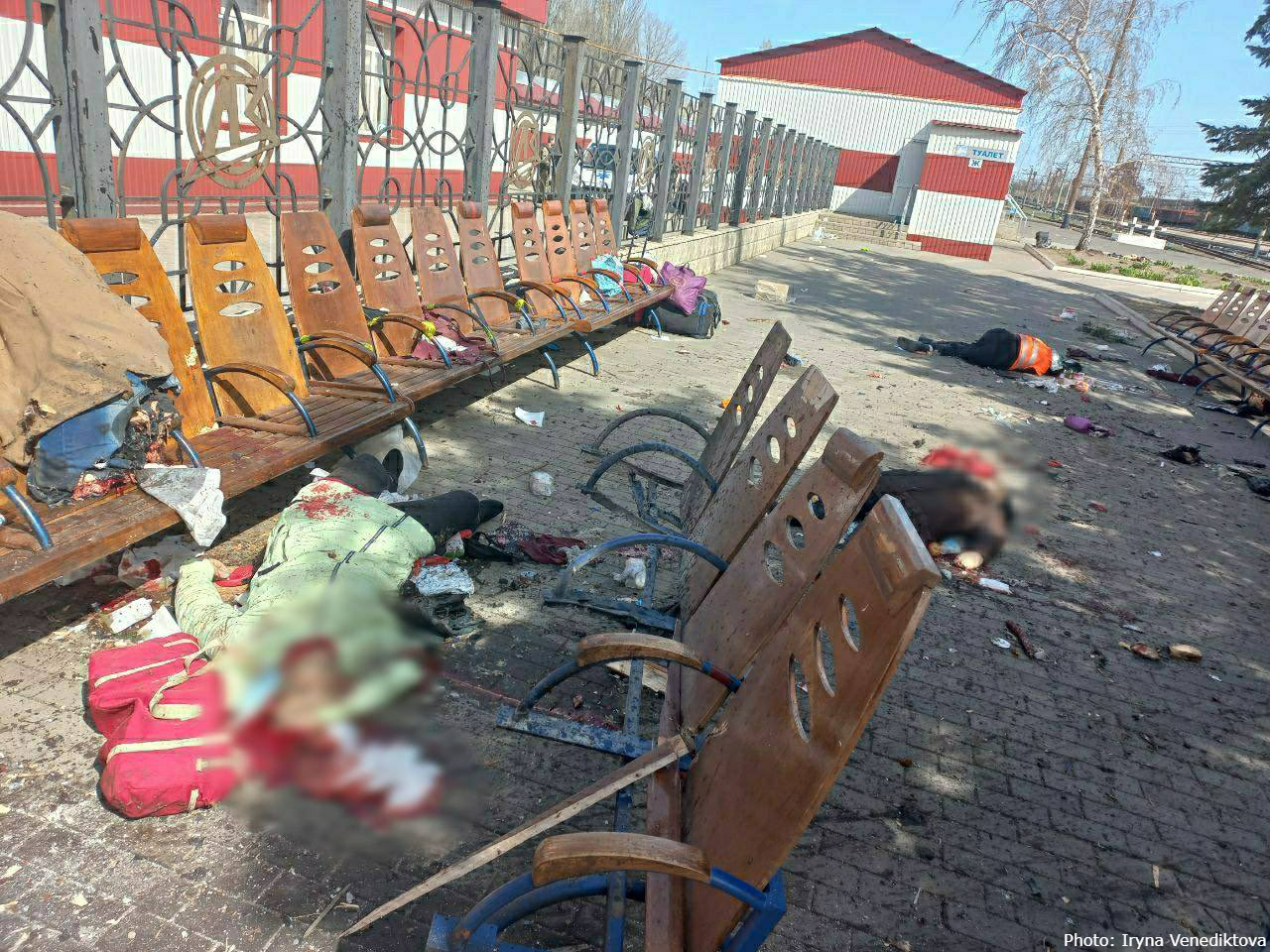 Aftermath of Kramatorsk railway shelling
Aftermath of Kramatorsk railway shellingThe researcher presented several recommendations for effectively countering calls for genocide and aggressive warfare.
“Governments of democratic countries should carry out comprehensive scientific research of the impact that such calls directly have on the people they are addressed to. This topic is currently underexplored, and responsibility for calls to wage war of aggression is not clearly defined in international law,” Siedova said.
According to her, the concept of “propaganda for waging aggressive war” is not clearly defined. The stance of the CHRG is that the definition of this concept should include calls for committing war crimes and crimes against humanity, and a ban on communicating such calls should be clearly enumerated in international law.
Moreover, Siedova noted that there is a need to develop a methodology for identifying such calls on the internet and legal mechanisms for blocking and limiting access to information resources that distribute such content.
“International organisations and democratic governments should pay more attention to documenting facts of this particular type of crime. The reason is that there is a lot of talk about war crimes committed by the Russian army in Ukraine, but almost nobody mentions those who motivate and push the Russian military to commit these crimes. Such calls are aired nearly every day on Russian media and have features of a systemic national policy because the media in Russia are fully controlled by the State and there are no independent media in this country,” the researcher highlighted.
Furthermore, she pointed out that international organizations and governments of democratic countries urgently need to unite efforts and work together to develop a comprehensive strategy for countering calls for genocide and aggressive war.
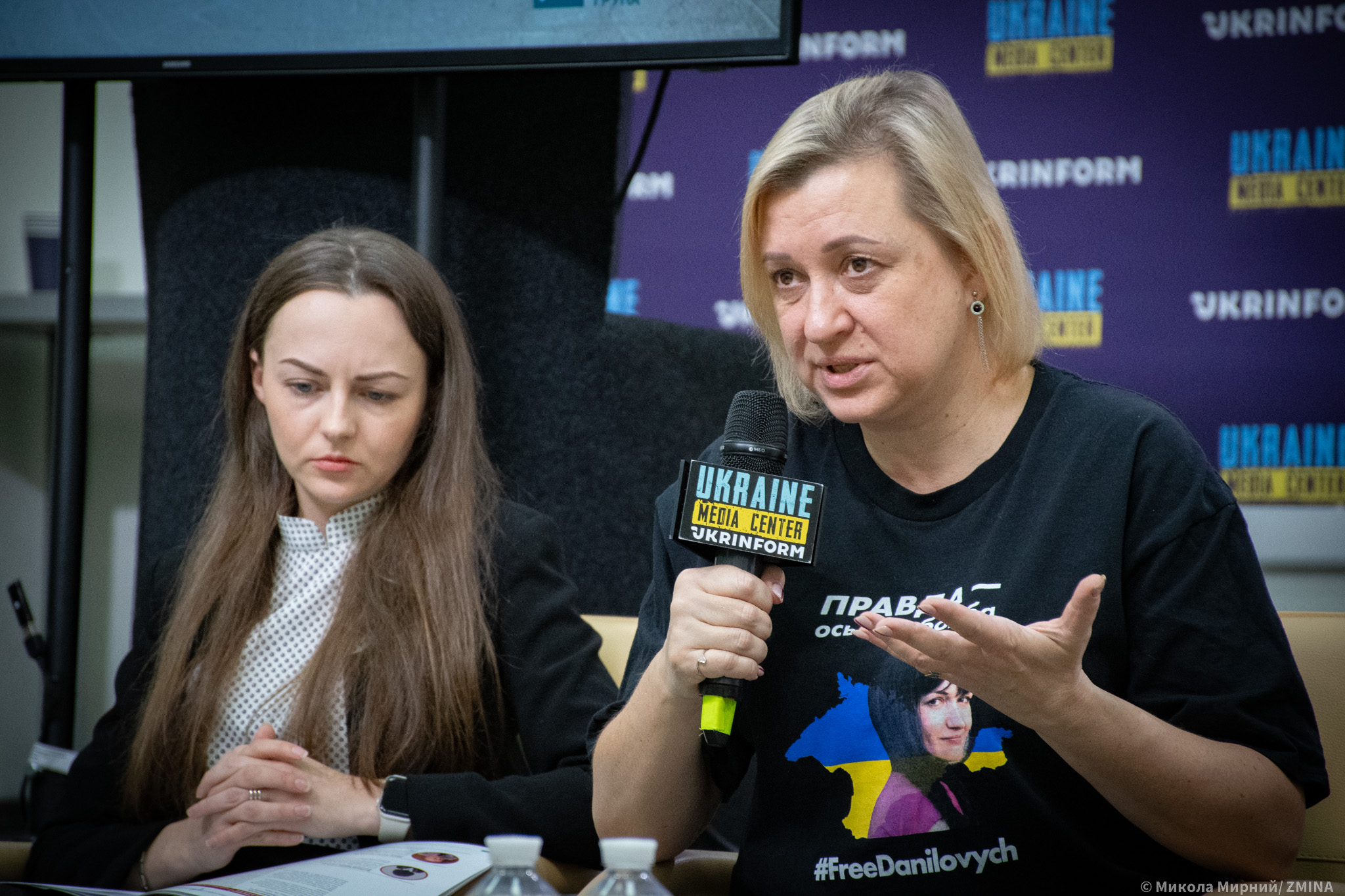 Iryna Siedova, a researcher at the Crimean Human Rights Group (CHRG)
Iryna Siedova, a researcher at the Crimean Human Rights Group (CHRG)“Among the calls to kill Ukrainian civilians, there are also calls to bomb European cities and drop bombs on countries that provide military aid to Ukraine. For instance, television host Vladimir Solovyov, on the state channel ‘Russia 1,’ stated that Russia should strike NATO countries that train Ukrainians in air defense and called for conquering other European countries immediately after Russia defeats Ukraine. This problem extends far beyond the Russia-Ukraine war. It is a global security issue, as Russian propaganda technologies are also at work in other countries and regions,” Iryna Siedova emphasised.
When speaking of effectively countering the spread of such calls, Siedova stressed the need to carefully study and develop new legal mechanisms to influence the owners of social media platforms and messengers that currently facilitate the global spread of this dangerous content.
“We can now say with certainty that calls for the genocide of Ukrainians are systematically spread through the Telegram messenger, as well as other Russian social networks. The owners of these social networks and messengers take no measures to block such dangerous content. Currently, the Russian information space has transformed into one massive and powerful ‘Thousand Hills Radio,’ manipulating a country of 140 million people and inciting hatred and a desire to destroy all Ukrainians and residents of other countries who do not support Vladimir Putin,” Siedova said and stressed that the task of the international community now should be to actively engage in developing new and more advanced mechanisms for detecting calls for genocide and holding those responsible to account.
The researcher urged international organizations and governments to gather evidence for submission to the International Criminal Court and other relevant institutions. She called for personal sanctions against Russian propagandists systematically inciting genocide and war crimes.
“Unfortunately, international law currently lacks sufficient tools to influence information criminals and the platforms that facilitate the spread of this content. Therefore, we must work towards introducing personal sanctions against those Russian propagandists who systematically call for the genocide of Ukrainians, the commission of war crimes, and crimes against humanity in Ukraine. We now have enough evidence of the criminal activities of Russian television presenters and officials involved in disseminating such calls. Therefore, we invite colleagues from international organizations and law enforcement agencies to cooperate in developing a comprehensive system to counter this phenomenon,” the CHRG researcher stated in a call for action.
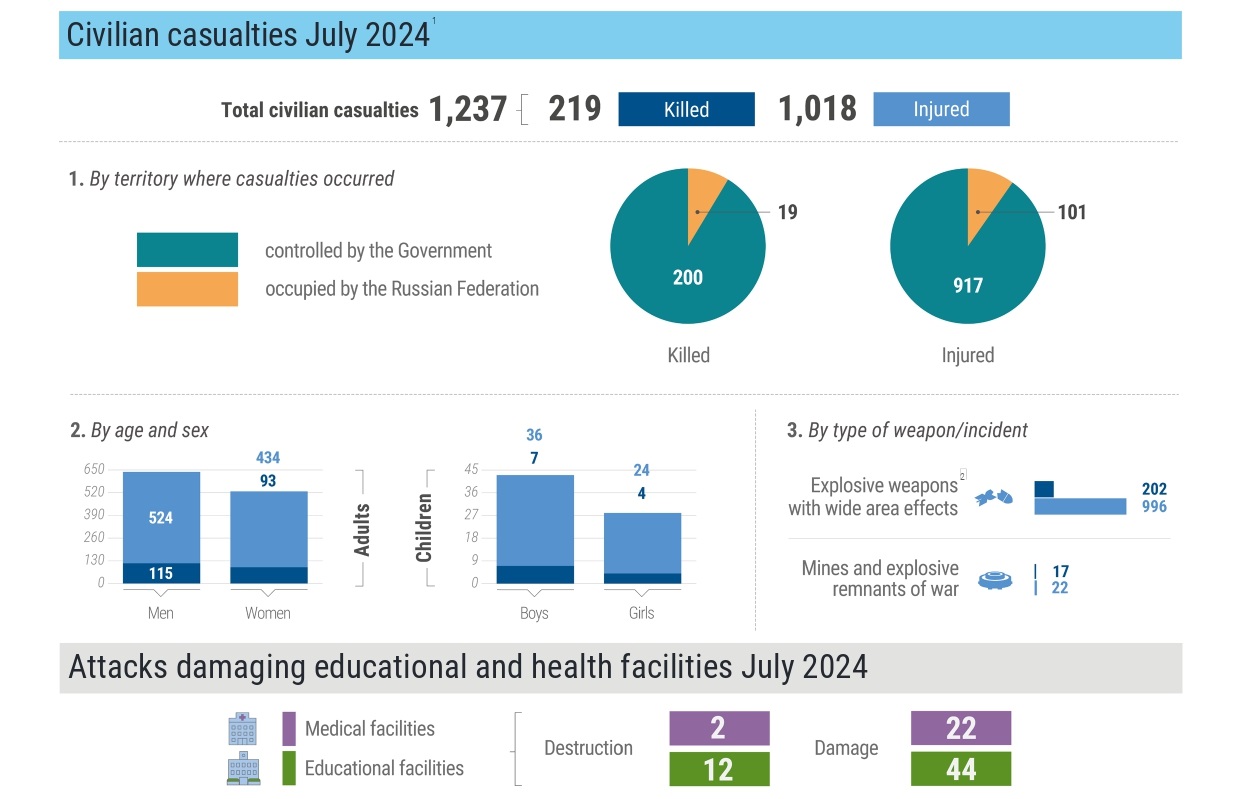
The UN pointed out that a large-scale coordinated attack launched by the Russian Armed Forces across Ukraine on July 8, 2024, killed at least 43 civilians, including 5 children, and injured 147, including 7 children, in Kyiv City, Dnipro City, Kryvyi Rih (Dnipropetrovsk region) and Kyiv region.
One missile in the 8 July attack also struck a hospital complex in Kyiv city, destroying the toxicology department of the Okhmatdyt National Children’s Hospital and significantly damaging the Center for Pediatric Cardiology and Cardiac Surgery.
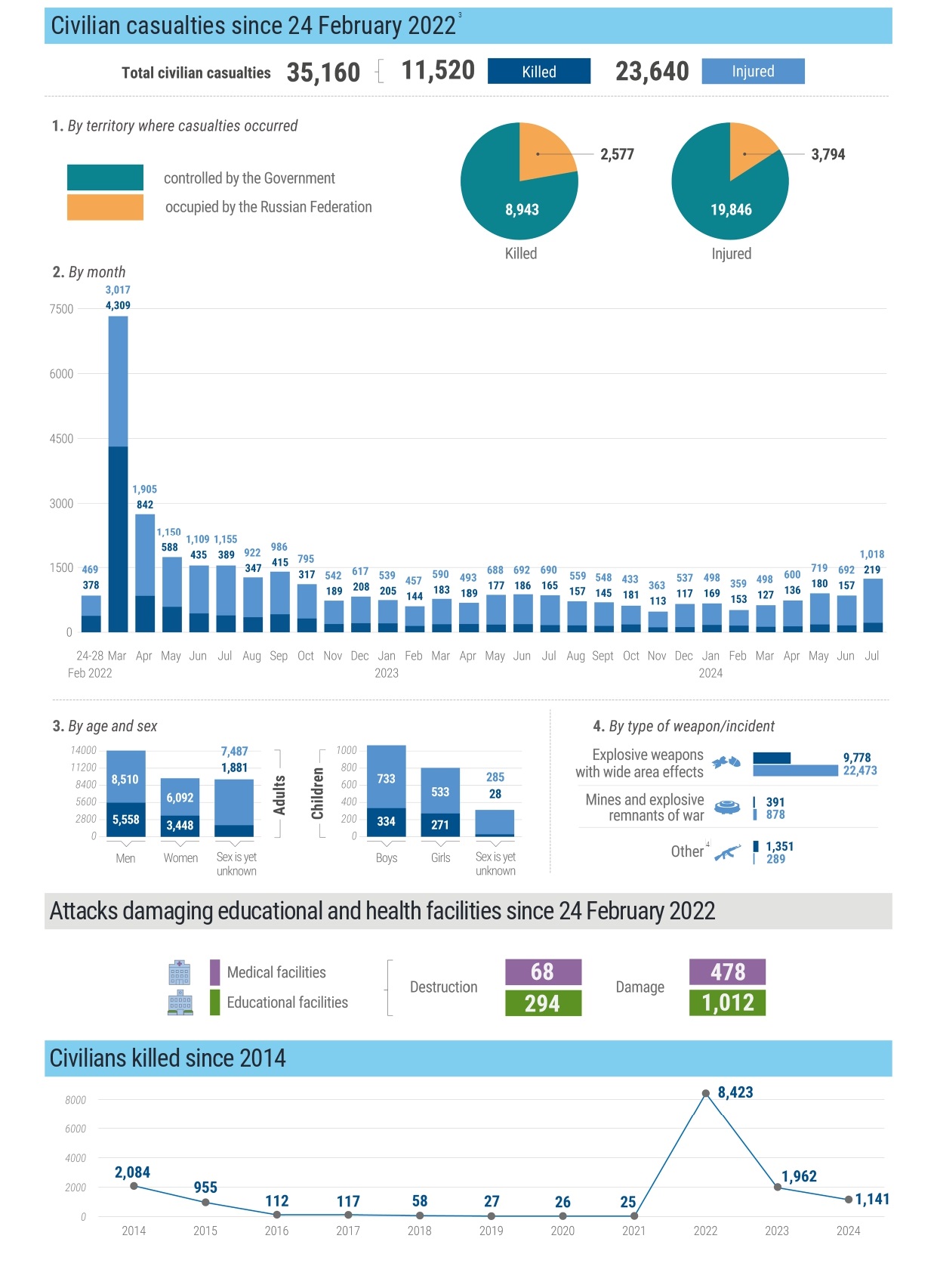
In June and July, the most intensive offensive military operations by the Russian Armed Forces shifted from the northern Kharkiv region to the Donetsk region, the UN Human Rights Monitoring Mission in Ukraine noted. As a result, verified civilian casualties in the Donetsk region increased from 125 civilians killed or injured in May to 224 in June and 269 in July 2024.
The vast majority of civilian casualties (90%) and damage to educational and health facilities (86%) continued to occur in Government-controlled territory.
As for now, it is impossible to determine the number of all casualties, as Ukrainian law enforcement agencies and the representatives of the ICC have no access to the temporarily occupied territories of Ukraine.

